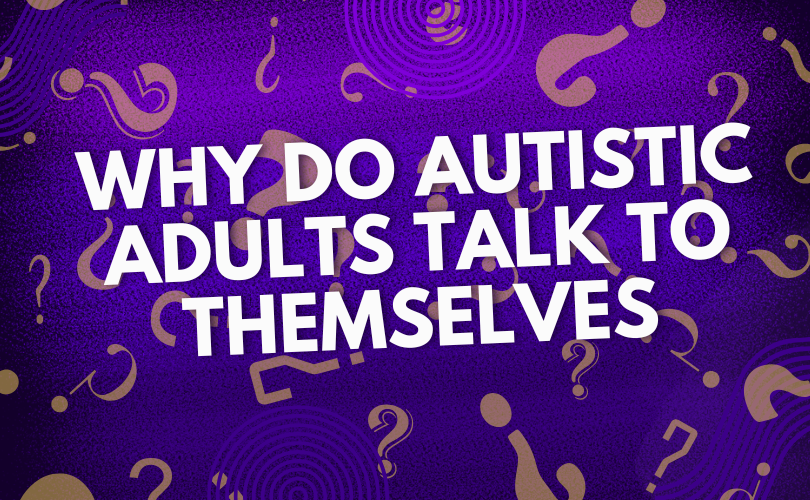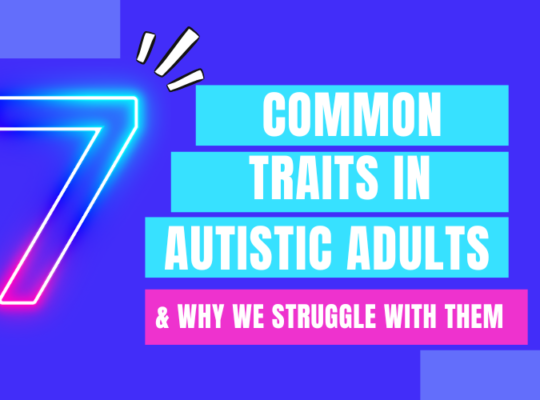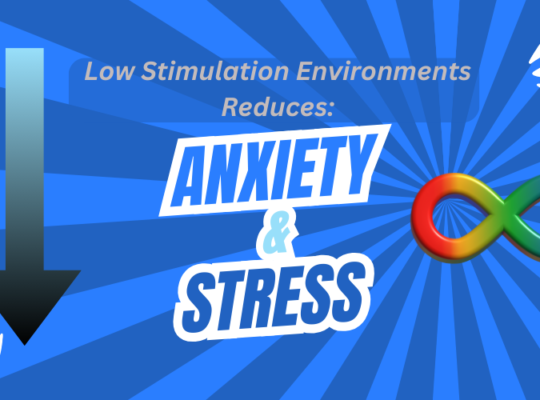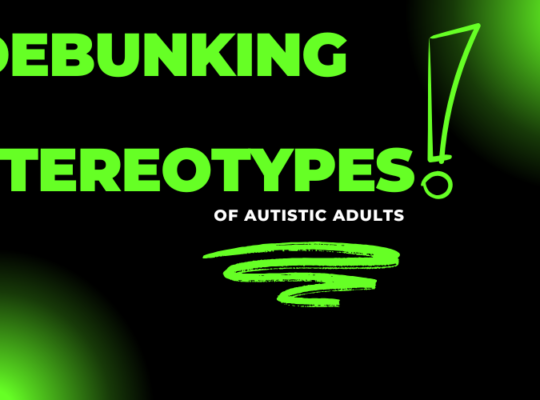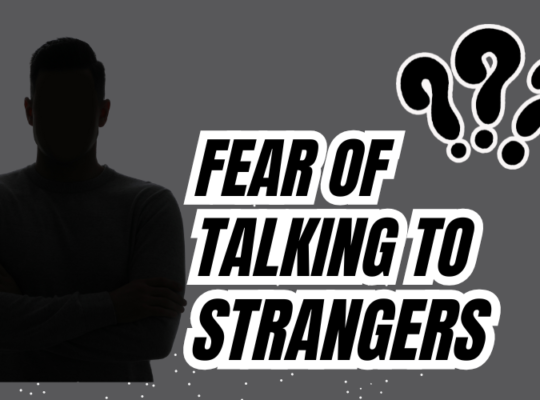If you talk to yourself as an autistic adult, do not feel ashamed or alone. for us autistics, it is considered common to engage in talking to ourselves aka self-talk.
What is self-talk?
For autistic adults, “self-talk” refers to the act of talking to OURSELVES, either silently or aloud.
Self talk can manifest as repeating phrases, having internal monologues, or even full conversations in their head, serving as a tool to communicate their feelings when verbal expression is difficult
Self-talk is a form of self-expression, communication and verbal stimming.
Why do we engage in self-talk?
Self-talk often serves as a coping mechanism for processing thoughts and information, regulating emotions, or navigating social situations.
Many of us on the autism spectrum use self-talk to:
- Coping with sensory differences
We may have trouble filtering out sensory information, which can lead to sensory overload. Self-talk can help us process and manage overwhelming sensations.
- Cognitive processing
Self-talk can help us organize our thoughts and process information. It can also help us understand complex tasks and make sense of our experiences.
Talking aloud can help with organizing thoughts, planning actions, and solving problems by verbalizing steps and strategies.
- Emotional regulation
Self-talk can help us identify triggers, develop coping strategies, and regulate our emotions.
Self-talk can be used to soothe anxiety, manage stress, and process strong emotions by verbalizing our feelings.
- Communication
Self-talk can help us compensate for communication challenges. It can also be a unique method of communication.
- Social preparation:
Rehearsing conversations or scenarios out loud can help us feel more prepared for social interactions. This is known as scripting.
- Reviewing conversations
We may like to review conversations with ourselves, which is also known as “scripting”. This can be a source of comfort, especially if we are excited or anxious about something.
- Sensory processing:
Sometimes, the act of speaking aloud can provide needed sensory input.
Why do we talk to ourselves?
Talking to ourselves is a form of self-talk.
We often talk to ourselves to help us process information, manage anxiety, or navigate social situations.
For us Autistics, talking to ourselves can take various forms, ranging from repeating words or phrases that we find significant or comforting to full conversations.
Why do we engage in conversations with ourselves?
We, Autistic adults, often engage in conversations with ourselves. which can manifest as internal or external dialogues.
We often engage in conversations with ourselves to communicate our thoughts and feelings effectively, especially when other forms of expression are challenging: expecially acting as a coping mechanism to help us feel more in control and understand our experiences better.
Taking to ourselves, including full conversations with ourselves internally and out loud is considered a normal occurrence among people on the autism spectrum.
Is talking to yourself a bad thing?
Is talking to yourself a bad thing or a sign of a serious mental health issue?
No, talking to yourself out loud as an autistic adult is not necessarily a sign of a serious mental health issue.
Talking to yourself is not always a problem: While it may seem unusual to others – especially to Allistics, talking to yourself is not inherently a negative behavior, especially if it is helping you function effectively
If your self-talk, or talking to yourself becomes disruptive in public settings, it might be helpful to find strategies to manage it, like using quiet self-talk or finding private spaces to process thoughts.
While self-talk is common, if the behavior becomes disruptive, excessively frequent, or accompanied by other concerning symptoms like hallucinations or delusions, it’s important to consult a mental health professional

